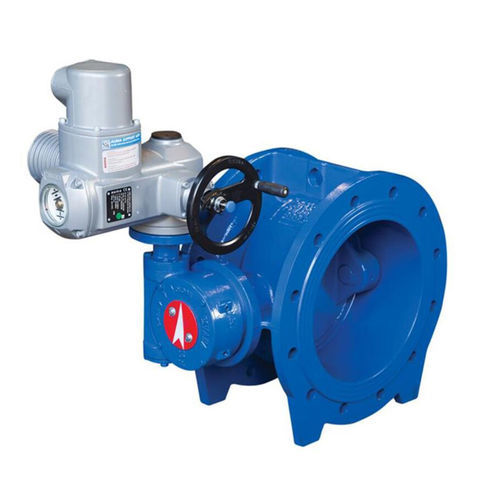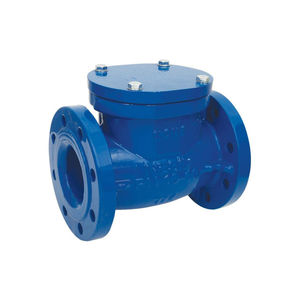
- Hydraulics - Pneumatics
- Valve
- Butterfly valve
- STURDY MACHINE
Butterfly valve manual
Add to favorites
Compare this product
Characteristics
- Type
- butterfly
- Operation
- manual
Description
Valve body and valves are designed to show minimum resistance. Sealing is provided by a t-section sealing ring, which is fixed circumferentially on the edge of the flapper with a pressure ring. In the closed position of the flapper, the sealing ring is pressed against the tapered machined body seat, thus ensuring absolute sealing in both directions. The sealing ring can be easily replaced without dismantling the flapper. The surface of the site is made of hard chromium or AISI 316 stainless steel welded filling, so the surface of the site is resistant to abrasion and corrosion. Our butterfly valves are manufactured as double eccentric. The purpose of the first eccentric is to reduce the pressure on the rubber sealing ring during valve opening, to eliminate the abrasive effect and to ensure a continuous contact between the sealing ring and the body site. During the valve opening process, the rubber sealing ring is easily separated from the body seat surface with the help of the second eccentric. There is a two-piece shaft design inside the valve that increases the passage cross-section. Stem sealing is ensured by the O-ring system made on self-lubricating bushings made of bronze and delrin, ensuring a longer life without maintenance. Gearboxes provide the quarter turn (90o) travel required by butterfly valves. Gearboxes are designed to enable butterfly valves to be opened by one person manually by turning the handwheel under rated pressure acting from one side. It is lockable and does not allow the forces acting on the valve due to flow conditions to rotate the valve.
Catalogs
No catalogs are available for this product.
See all of STURDY MACHINE‘s catalogs*Prices are pre-tax. They exclude delivery charges and customs duties and do not include additional charges for installation or activation options. Prices are indicative only and may vary by country, with changes to the cost of raw materials and exchange rates.














